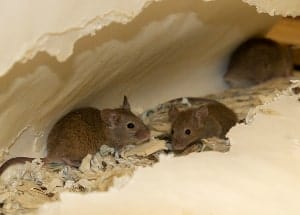Mice always leave evidence of their presence either by causing destruction or pooping in your house. This is the way you will know the areas where the mice are more active in your home. Most people have no idea how mouse poop looks like, and they may sweep it off, thinking it is normal dirt. It is important to know how the poop looks like since some may carry dangerous infectious diseases.
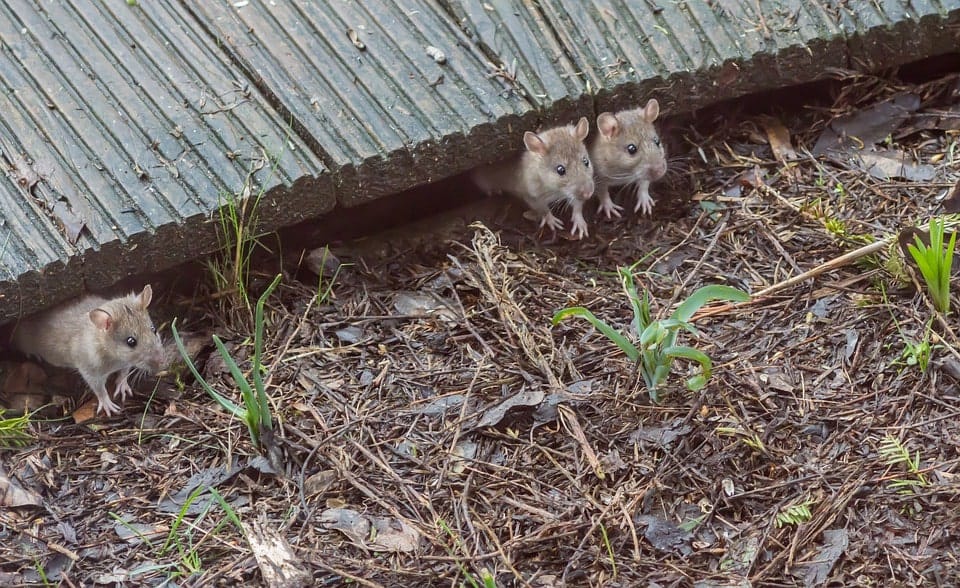
Many people often confuse mouse poop with rat poop, which can be challenging to identify and clean up. To help you identify mouse droppings and detect an infestation early on, I have created a comprehensive guide with detailed information. This will allow you to identify mouse poop and take appropriate action to deal with the issue before it gets worse.
What Do Mice Droppings Look Like? – A Quick Way to Recognize Them
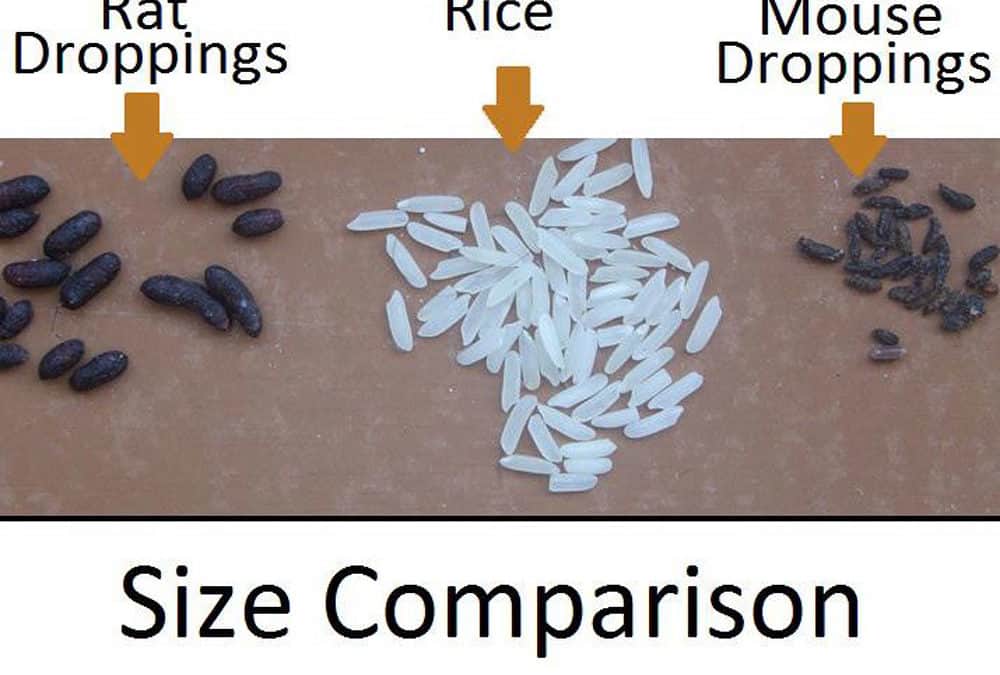
To quickly recognize mouse poop, it is important to examine its size and color. Mouse droppings are thin, resembling tiny pellets that are typically 1/16 inches thick and 3/16 inches in length. They have pointed ends and a slightly swollen middle. Fresh mouse droppings are dark brown, but they will become lighter in color as they age.
Difference Between Mouse Poop and That of Other Pests
Distinguishing mouse poop from those of other pests such as rats and cockroaches helps you to be certain of what you’re dealing with. The mouse poop size is the key distinguishing factor. How big are mouse droppings? They are smaller and appear like dark rice grains and have a tapered look towards the end.
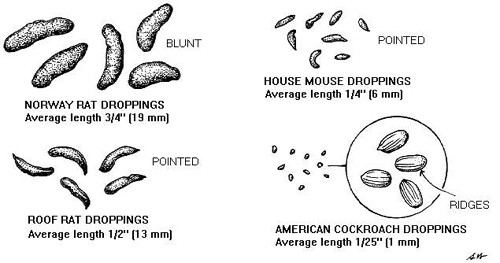
They are approximately a quarter of an inch as compared to the rat droppings, which are 1/2 of an inch wide and larger than those of the mice. When comparing mouse poop vs cockroach poop, it is important to note that the big cockroaches’ poops have ridges along with the droppings while the mouse droppings do not have these ridges. So, when you see pests poop in your house, but you are not sure if they are for mice, compare them with mouse droppings images to see if they match.
How to Know if the Mice Are Still There
A method to determine whether you have a current mouse infestation is by removing the poop carefully or asking for professional assistance to remove the poop. If you find new poop 24 hours after removing them, then that is an indication that there is a current infestation in your home.
You can also determine a current infestation by the hardness of the droppings. If you are wondering, are mouse droppings hard? Yes, they become hard after 24 hours of defecation, but this method may not be accurate since, in a damp area, they may soften.
[wpsm_titlebox title=”Read more:” style=”main”]
[su_posts template=”templates/teaser-loop.php” id=”4492, 2754, 12738″ posts_per_page=”3″ order=”desc”]
[/wpsm_titlebox]
Where to Find Mouse Poop in House
Mice are nocturnal creatures; that is, they are active during the night. Therefore, spotting them is hard. Thus, if you have found mouse droppings but no mouse, it is still a clear sign of infestation. How often do mice poop? On average, mice can defecate 50-70 droppings every day.
Droppings do not have to be many to indicate a raid by the mice. If you have found one mouse dropping, it can still be a sign that they are present. The presence of one mouse is an indication that there are several other mice around; they rarely stay alone. Hence, it is important to check various places in your house for a possible raid by the mice.

Also, you can opt to seek for professional help to identify the extent of raiding by these rodents. It is best to check the places indicated below in your house in case you are suspecting an infestation.
- Food preparation and storage places like the kitchen cabinets;
- Any dark corners in the house;
- Any air ventilation areas, holes in the house, or pipes;
- Bathroom closets;
- Any space that an animal can crawl in;
- Clothes and shoe closet;
- Near or behind appliances such as the fridge.
Is Mouse Poop Dangerous? Here’s What You Should Know
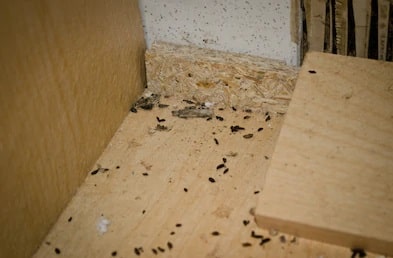
Hantavirus syndrome is a virus carried by most rodents, mice included. One can contract this disease by breathing in air that has been contaminated with this virus, which is present in the urine and droppings of the carrier rodents. Therefore, this answers the question, “what diseases do mice droppings carry?”
Since most people are ignorant about diseases caused by mouse poop, they may handle the poop carelessly or even ignore its presence altogether. The treatment of this virus is limited, and therefore, you should be careful during cleaning. Moreover, the symptoms of this virus present themselves as flu, which, if not treated, may be fatal.
How to Clean Mouse Poop Safely
To completely do away with mouse turds, the best thing to do is to get rid of all the mice by using the appropriate and less dangerous methods. You can do this yourself or seek professional services. If you decide to do it on your own, then it is advisable to avoid touching it with your bare hands since you can get infected.
To conduct proper cleaning, you should first ensure you wear the appropriate gears like face mask and gloves. Expose or air the areas you have found the pellets for 30 minutes before cleaning. Additionally, use disinfectant liquids or sprays on the area to make the droppings wet and kill the germs in the area.
Further, use a disposable rag or towels to wipe the area and dispose of them well after use. Can you vacuum mouse droppings? Many people debate whether this should be done. Ideally, it may look like a reasonable thing to do to avoid touching the mouse poop, but this is not the case since these droppings contain infectious germs that are airborne and may make you or even your family sick. Therefore, vacuuming should be done on the area after the poop has been removed.
Closing Remarks
Most times, people are oblivious of the dangers that can be caused by the droppings of these rodents. Therefore, they are not keen enough to clean them properly or even notice them. If this is a recurring problem in your house, you should seek professional help to assist you in identifying where the mice are hiding and get rid of them.
If you choose to handle the situation alone, ensure you follow instructions to the latter, especially if you find mouse droppings in the kitchen. This is because the germs may be transmitted to your food or even cutleries. Most importantly, it is important to have a mouse poop picture to use for confirming if the droppings you find in the house are for mice.
Have you ever encountered mouse poop in your house? What remedies did you use to get rid of the poop? Was the problem solved completely? Share your experiences by leaving a comment.
References:
- Hantavirus pulmonary syndrome (Mayo Clinic):
https://www.mayoclinic.org/diseases-conditions/hantavirus-pulmonary-syndrome/symptoms-causes/syc-20351838 - Cleaning Up After Rodents (Centers for Disease Control and Prevention):
https://www.cdc.gov/rodents/cleaning/index.html

